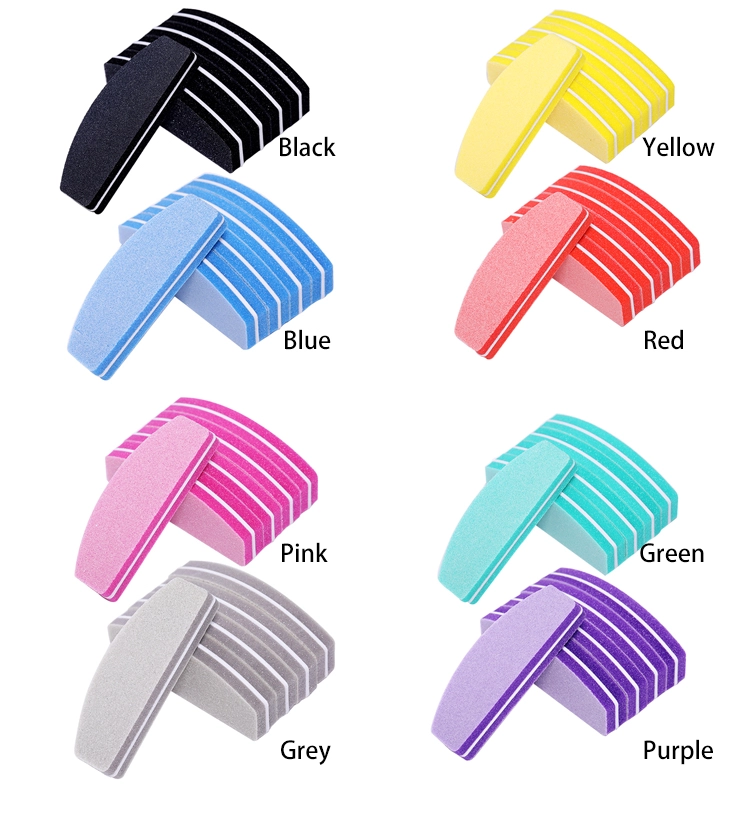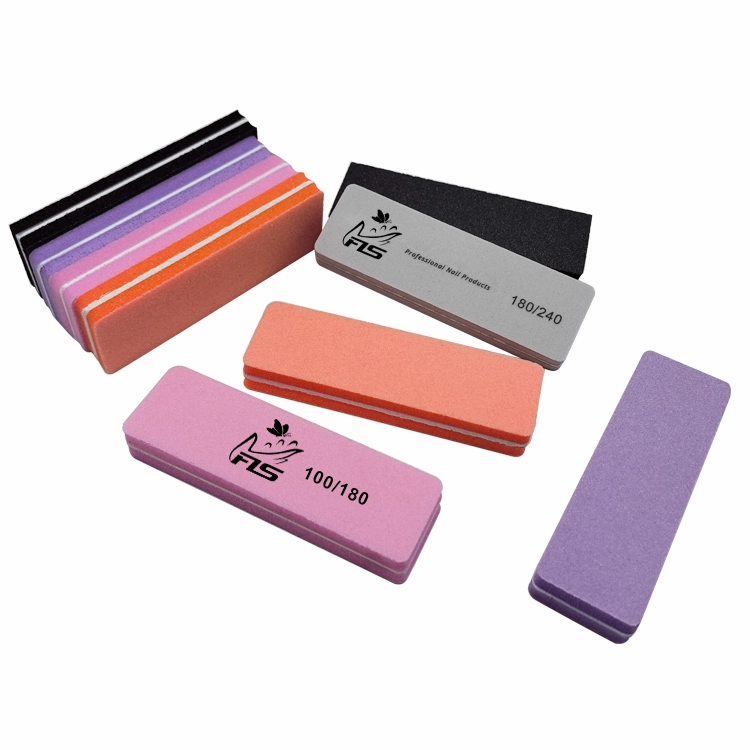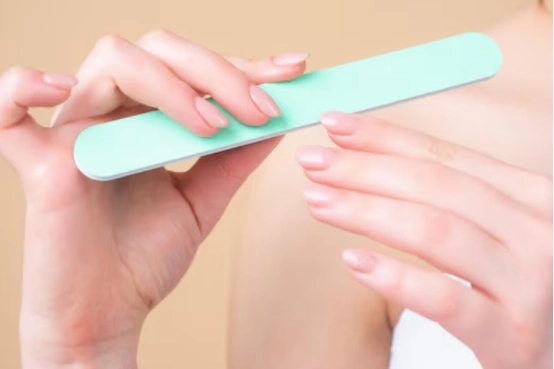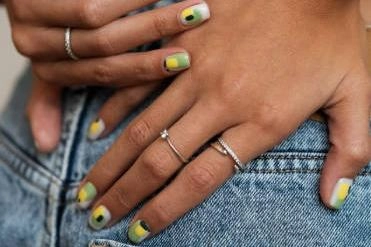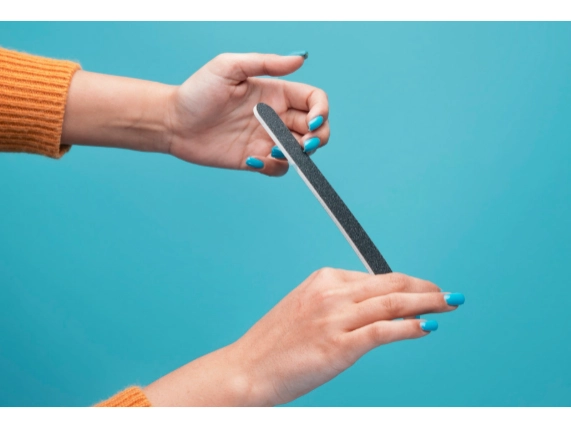When aiming for beautiful nails at home, your tools matter as much as your skills. Two key tools in any nail care kit are emery boards and traditional nail files. Both shape and smooth nails, but they have distinct features. Knowing their differences helps you pick the right one for your needs.
Understanding Nail Filing Tools
What is an Emery Board?
An emery board is a nail tool coated with emery, a gritty material. It shapes and smooths natural or artificial nails. Emery boards are popular in salons and homes due to their ease of use.
Differences Between Emery Boards and Nail Files
Emery boards are usually made of cardboard or foam with emery grit on both sides. In contrast, nail files can be metal, glass, ceramic, or plastic with surfaces like sandpaper or diamond dust. Emery boards are cheap and disposable. Nail files are often more durable and reusable.
How Emery Boards Work
Materials and Grit Levels
Emery boards have a flexible base covered with abrasive particles. They come in different grits, from coarse (60-80 grit) for artificial nails to fine (180-240 grit) for natural nails. For example, Felice’s Professional high quality custom private logo zebra grey nail file and emery board uses Japanese sandpaper in 60# to 240# grit options.
Shaping and Smoothing with Emery Boards
Most emery boards have two sides. Use the coarser side to shape nails. Then, use the finer side to smooth them. This makes them great for quick fixes or detailed work.
Why Choose an Emery Board?
Emery boards are hygienic since they’re often single-use or affordable to replace. They’re lightweight and easy to carry, perfect for travel. Felice offers hot sale factory price small size mini nail buffer blocks with customization for a personal touch.
Exploring Nail Files
Nail files come in materials like stainless steel, glass, ceramic, or sponge-backed sandpaper. These are often more durable and precise than emery boards. For instance, Felice’s Professional high quality custom private logo black nail file uses durable EVA-backed black sandpaper, ideal for salon use. Many nail files are washable, ensuring hygiene for repeated use—a big plus for professionals.
Which Tool Suits Your Needs?
Your choice depends on your needs:
- For Natural Nails: Fine-grit emery boards (180-240 grit) are gentle to avoid splitting.
- For Artificial Nails: Coarse-grit nail files (60-100 grit) handle tougher surfaces.
- For Portability: Mini emery boards are great for on-the-go touch-ups.
- For Longevity: Stainless steel or glass files last longer.
Felice offers a one-stop shop with options like mini buffers and professional-grade files.
Best Practices for Safe Nail Filing
Techniques to Avoid Damage
File in one direction instead of sawing back and forth. This prevents nail tears. Use light pressure on natural nails, especially with coarse grits.
When to Replace Your Tool
Replace emery boards after a few uses or when they wear out. Clean reusable nail files regularly. Replace them if they lose their grit or show damage.
Hygiene and Storage Tips
Keep tools in a dry place to avoid bacteria. For reusable files, like Felice’s high quality sponge nail file buffers with custom logo, clean with alcohol-based solutions between uses.
Choosing the Right Tool for Your Nails and Lifestyle
Matching Grit to Nail Type
Different grits suit different tasks:
- 60–100: Best for acrylics.
- 120–180: Good for shaping natural nails.
- 240+: Ideal for smoothing edges safely.
Felice’s Professional high quality mini size nail buffer block comes in 80#, 100#, 180#, and 240# grits, giving you full control.
Portability and Convenience
For frequent travelers or quick touch-ups, try compact tools like Felice’s 2 sides small size mini nail buffer block. They’re lightweight and fit easily in bags.
Expert Tips for Great Results
What Professionals Recommend
Experts suggest keeping both tools handy. Use disposable emery boards for hygiene in manicures or pedicures at home. Choose durable nail files for salon work. Felice’s OEM/ODM services let salons customize tools with logos while ensuring quality.
Adding Filing to Your Routine
File your nails weekly after a shower or soaking them in warm water. Start with shaping using the right grit. Then, buff with sponge-based tools like Felice’s High elastic sponge 4 ways nail buffer block with custom logo.
Picking between an emery board and a nail file is simple once you know your needs. Whether you want portability, durability, or professional performance, Felice offers high-quality custom private nail file and emery board options for everyone—from beginners to pros.
Elevate your manicure today—get your Felice emery board nail file now!
FAQ
Q: Can I use the same nail file for my fingers and toes?
A: It’s smarter to have separate files. Toenails are tougher. They can also hold more germs. Using different files stops spreading bacteria between them. Mark them to tell them apart.
Q: How can I tell if my nail file is too rough?
A: If your nails feel scratchy, uneven, or begin to peel after filing, that means it’s too coarse. Pick a smoother grit instead. Look for 180 or higher for natural nails. This avoids harm.
Q: Are there planet-friendly nail files?
A: Yes! Find biodegradable emery boards. These are often made from bamboo or cardboard. You can also get reusable files made from glass or metal. These choices create less trash than throw-away ones.
Q: Can I fix a nail file that’s worn out?
A: Metal or glass files might be gently cleaned. This can sometimes bring it back to life. But emery boards can’t be sharpened. If a file feels weak or gritty, it’s best to get a new one.

